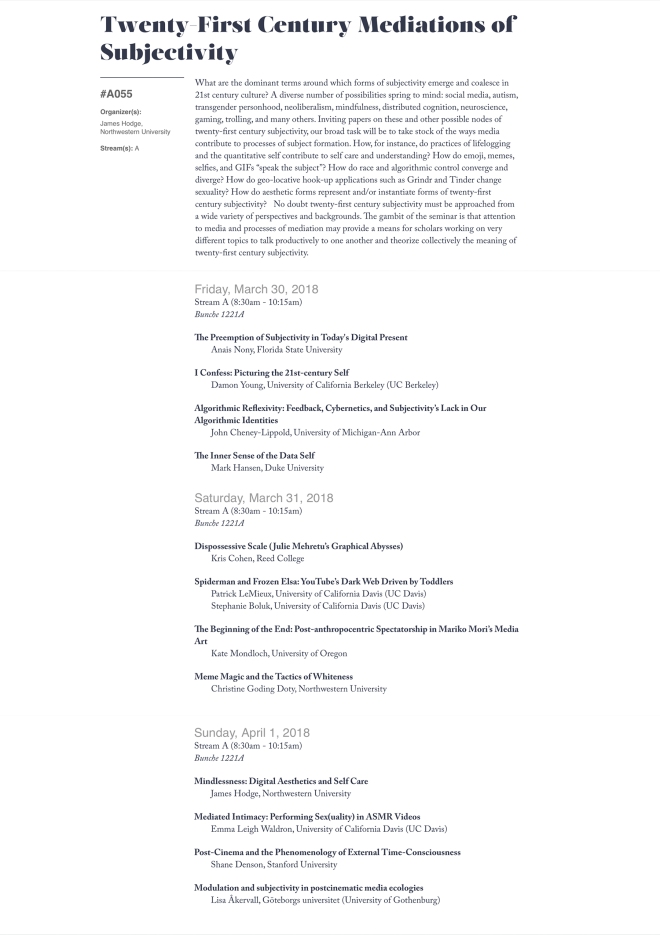
The Digital Aesthetics Workshop is looking forward to welcoming Rizvana Bradley, who will present “Borrowed Time: Mediating the Nonevental” on Tuesday, March 4, at 5-7pm PT. The event will take place in the Watt Dining Room at the Humanities Center, where refreshments will be served. Below you will find the Bradley’s bio and a brief abstract, as well as the poster for the event. See you there!
Zoom link for those unable to join in-person: https://stanford.zoom.us/meeting/register/mc9g6VF9SIyeMQ7L-bVFAw#/registration
Abstract:
This talk approaches the concept of mediality, which gets to the heart of a number of theoretical questions concerning the entanglements of raciality, mediation, and immediation, and the worldly violence of the everyday. Interrogating the racialized grammars of ontology, phenomenology, and (aesthetic) form, one can begin to further understand the depth of the violence and scope of the implications of what Bradley theorizes as black mediality. Black mediality has massive implications for both the grammar of technics that predominates in the philosophy of media, as well as the conception of mediality this grammar inscribes. Moving by way of artistic example, the talk demonstrates how both mediatic forms and the perceived technological exteriorizations of the modern human subject are bound to normative, phenomenological conceptions of temporality.
Bio:
Rizvana Bradley is Associate Professor of Film and Media and Affiliated Faculty in the History of Art and the Center for Race and Gender at the University of California, Berkeley.
Bradley’s book, Anteaesthetics: Black Aesthesis and the Critique of Form (Stanford University Press, 2023), moves across multiple histories and geographies, artistic mediums and forms—from nineteenth-century painting and early cinema, to contemporary text-based works, video installations, and digital art—in order to inaugurate a new method for interpretation, an ante-formalism, which demonstrates black art’s recursive deconstruction of the aesthetic forms that remain foundational to modernity.
Bradley serves on the Advisory Board of October. Her articles appear in journals such as Diacritics: A Review of Contemporary Criticism, Film Quarterly, Black Camera: An International Film Journal, Discourse: Journal for Theoretical Studies in Media and Culture, TDR: The Drama Review, Rhizomes: Cultural Studies in Emerging Knowledge, and Women and Performance: A Journal of Feminist Theory. Her art criticism has also been published in The Yale Review, Artforum, e-flux, Art in America, November, and Parkett, as well as numerous exhibition catalogs, including for the Serpentine Galleries, the New Museum, Whitechapel Gallery, Leslie-Lohman Museum of Gay and Lesbian Art, Institute of Contemporary Art Philadelphia, and the Berlin Biennale for Contemporary Art. Bradley has curated a number of academic arts symposia, including events at the British Film Institute, London, the Serpentine Galleries, London, and the Stedelijk Museum of Art, Amsterdam.
